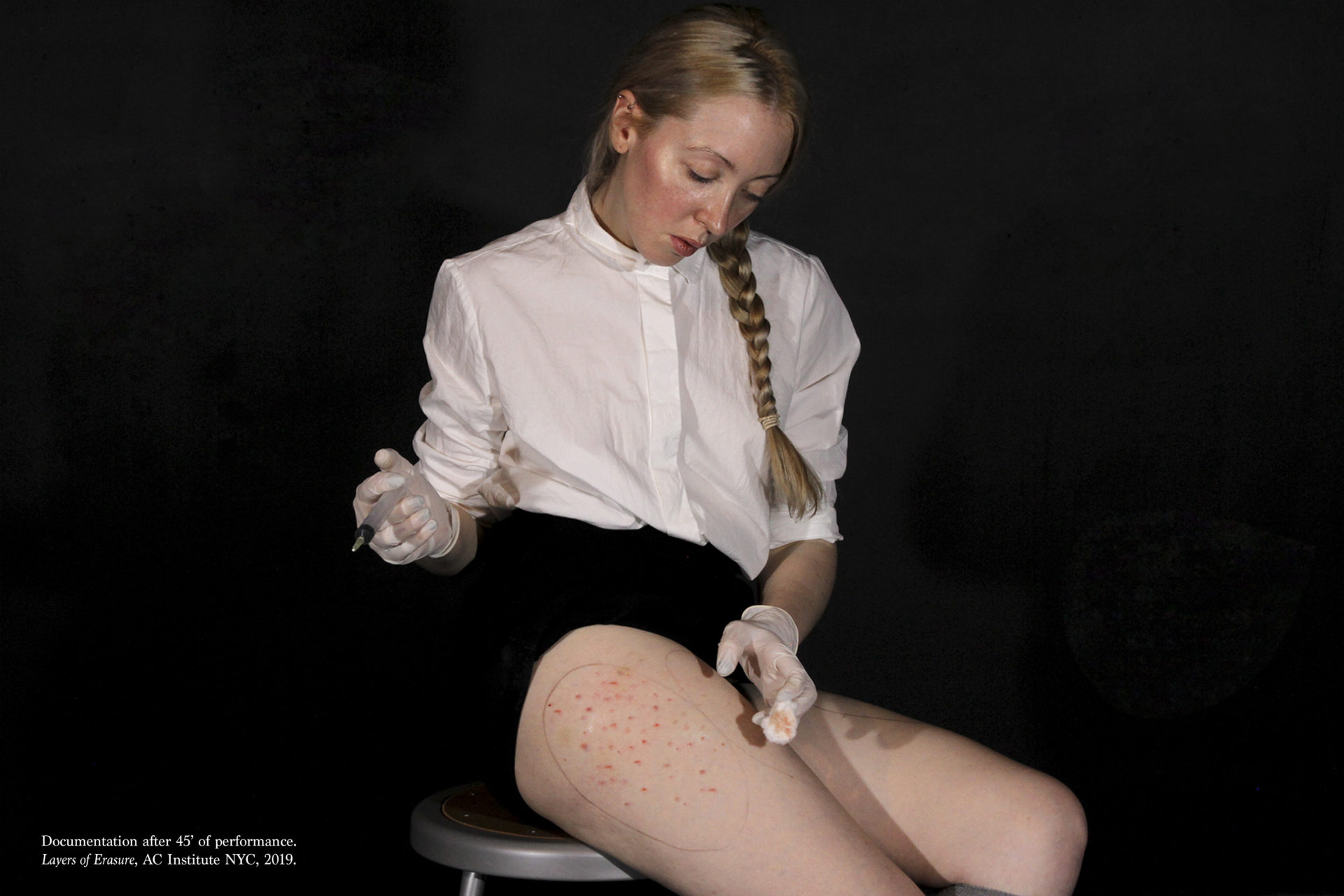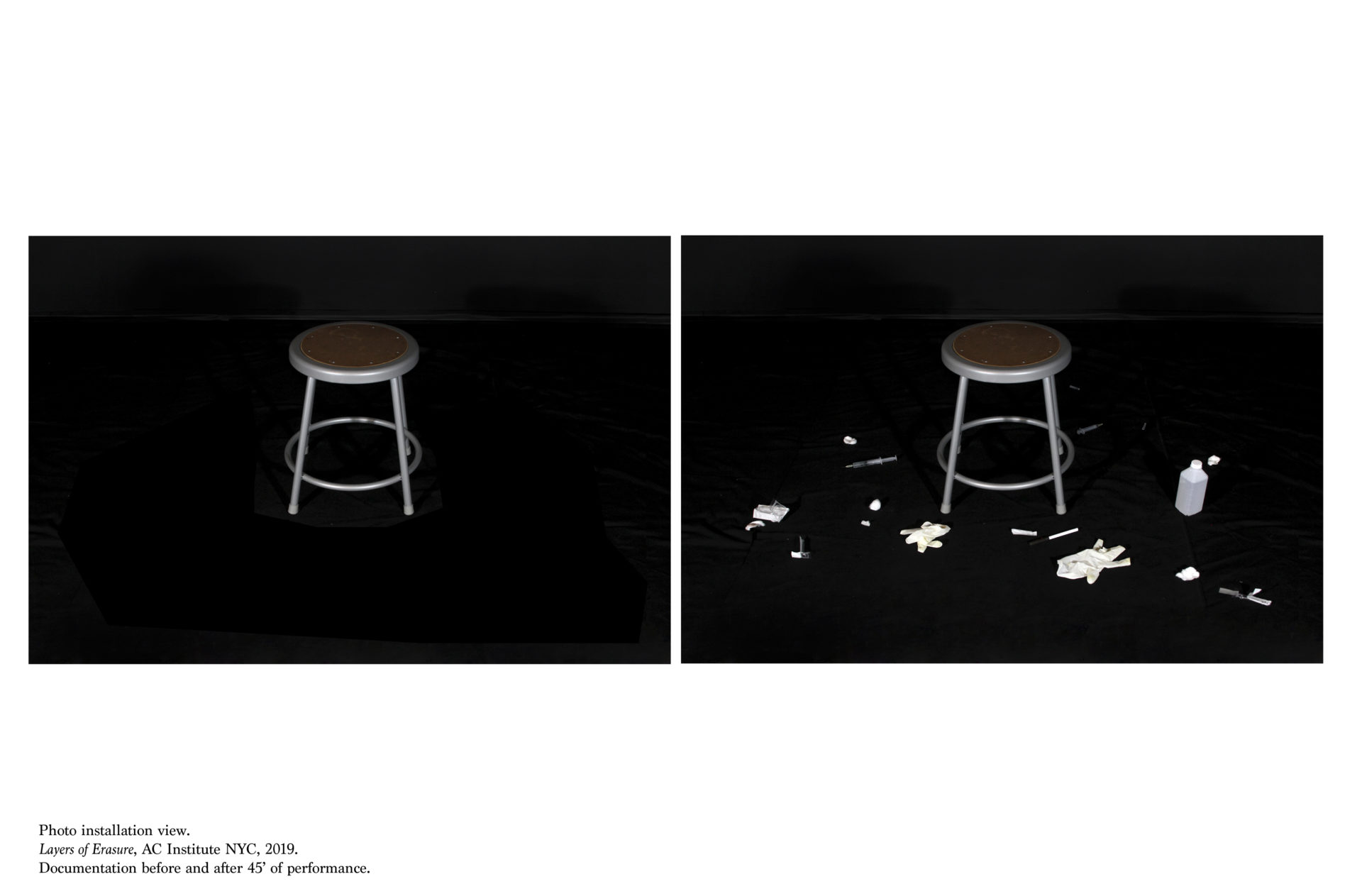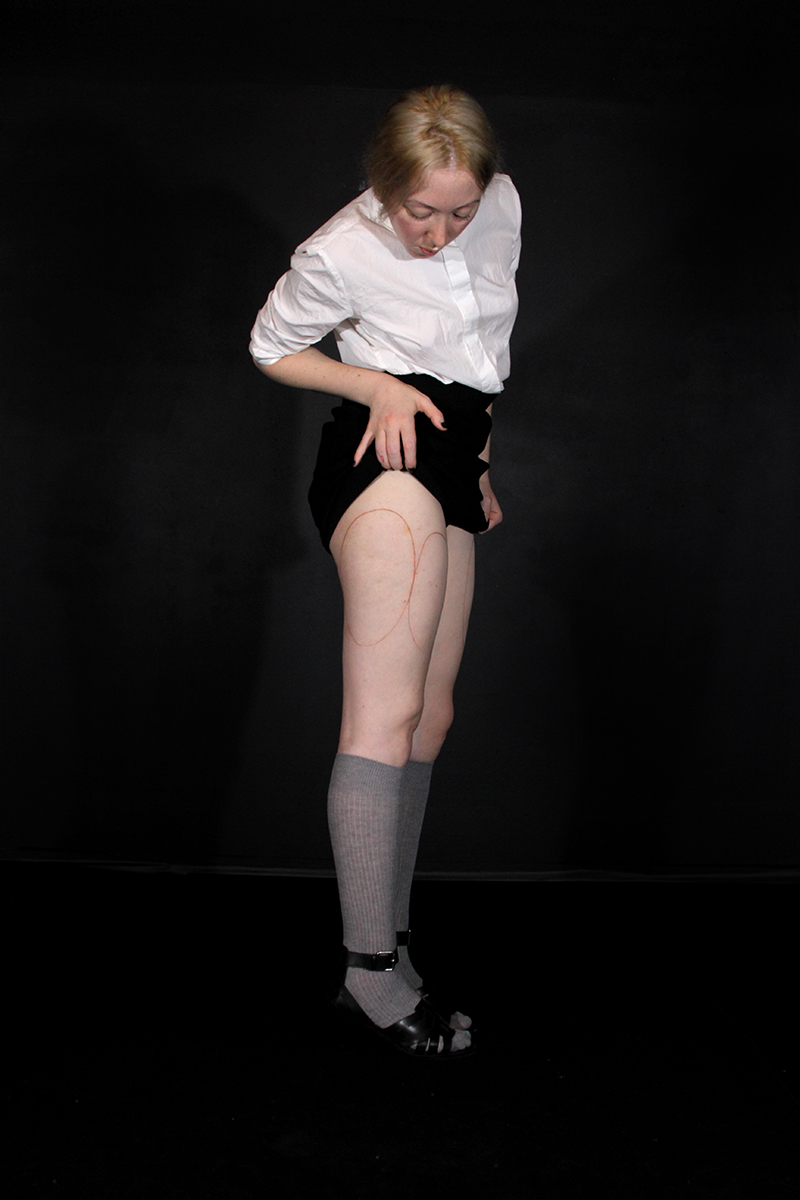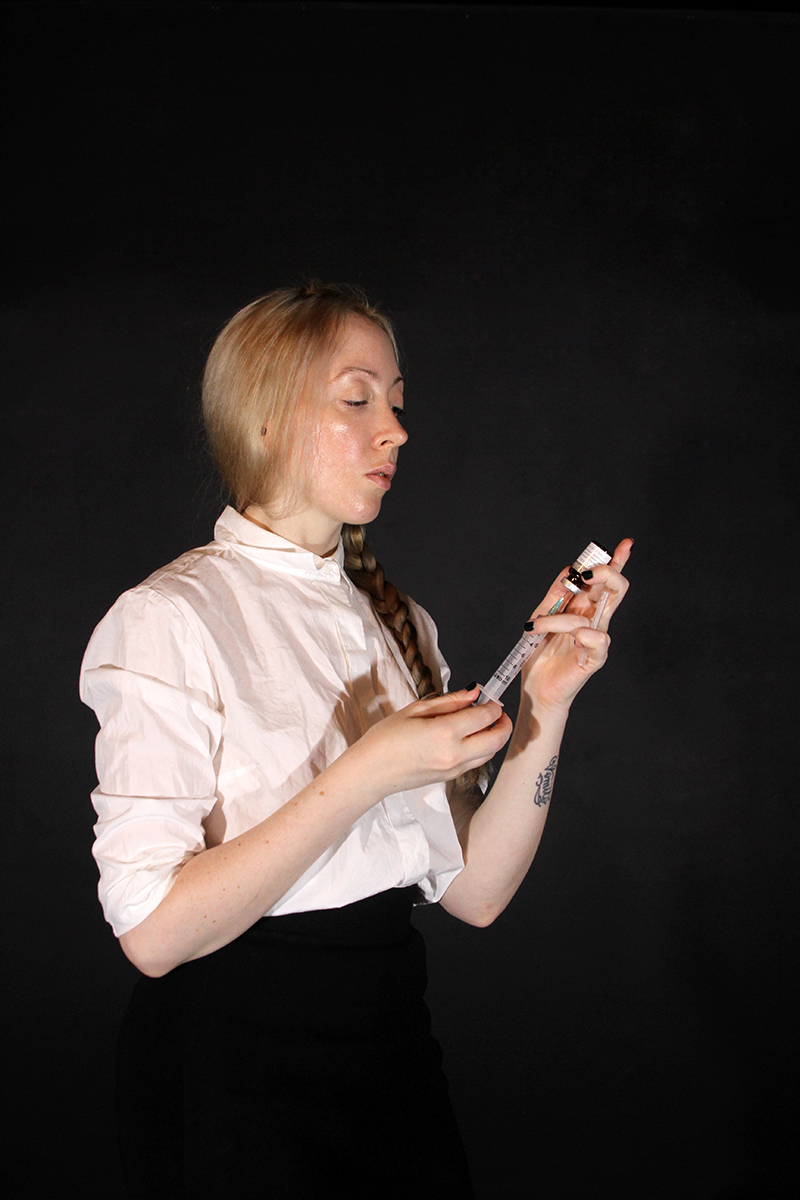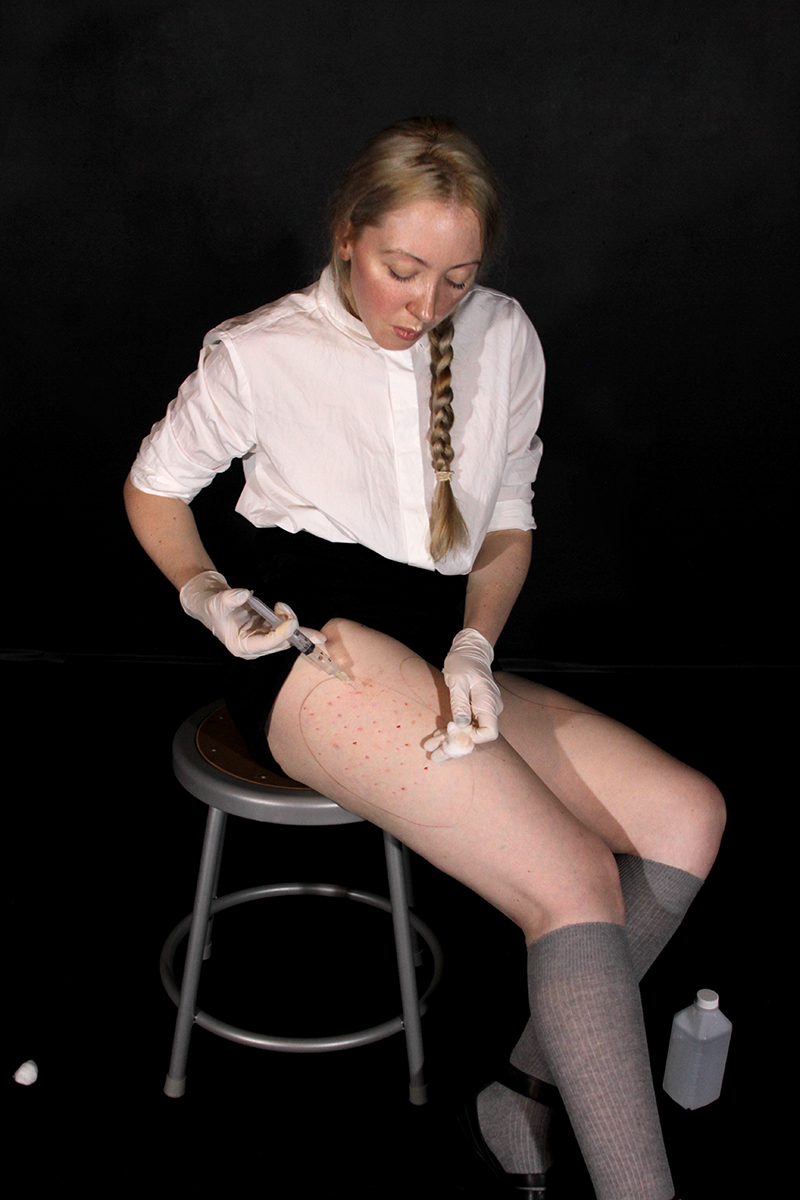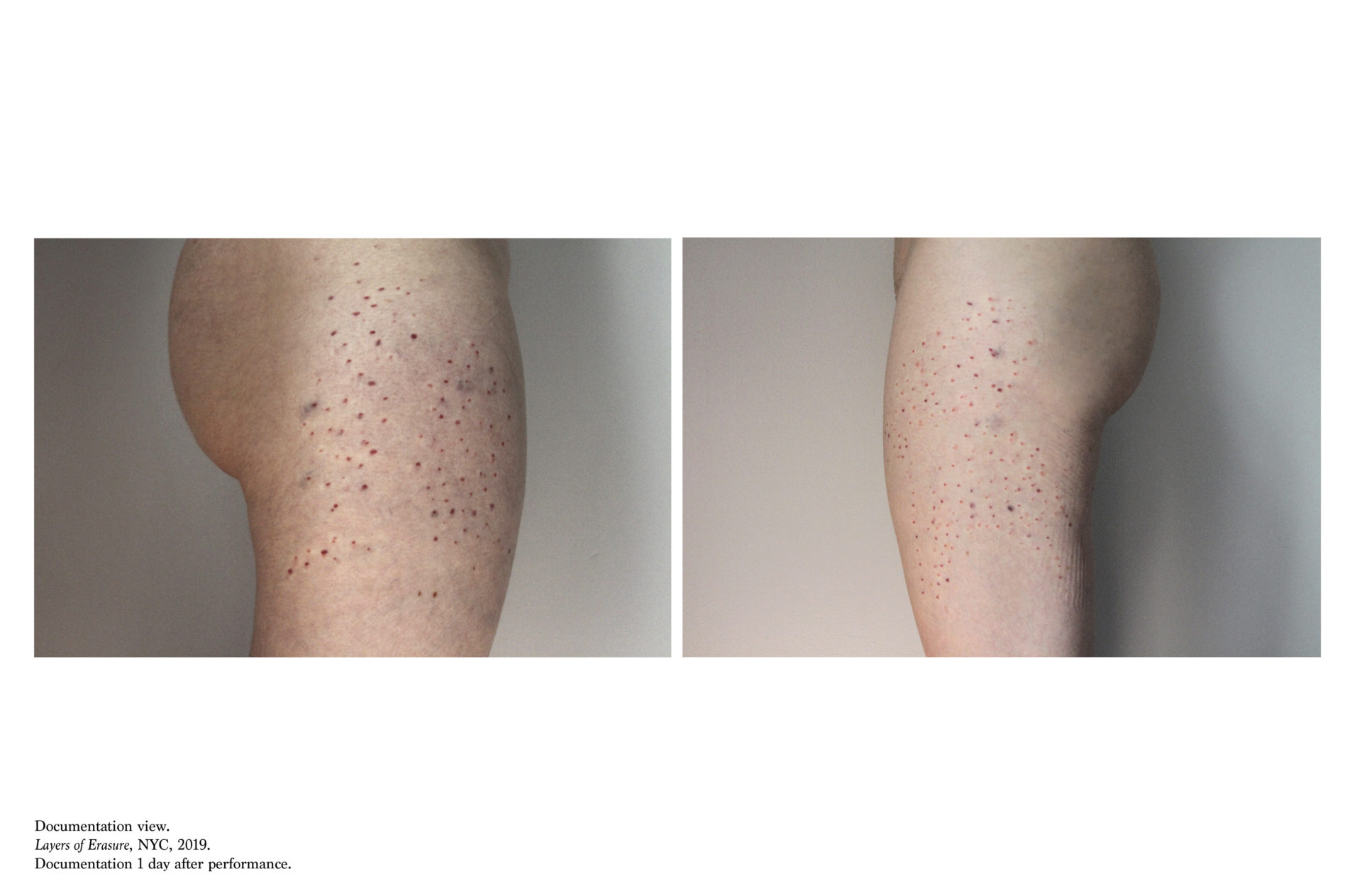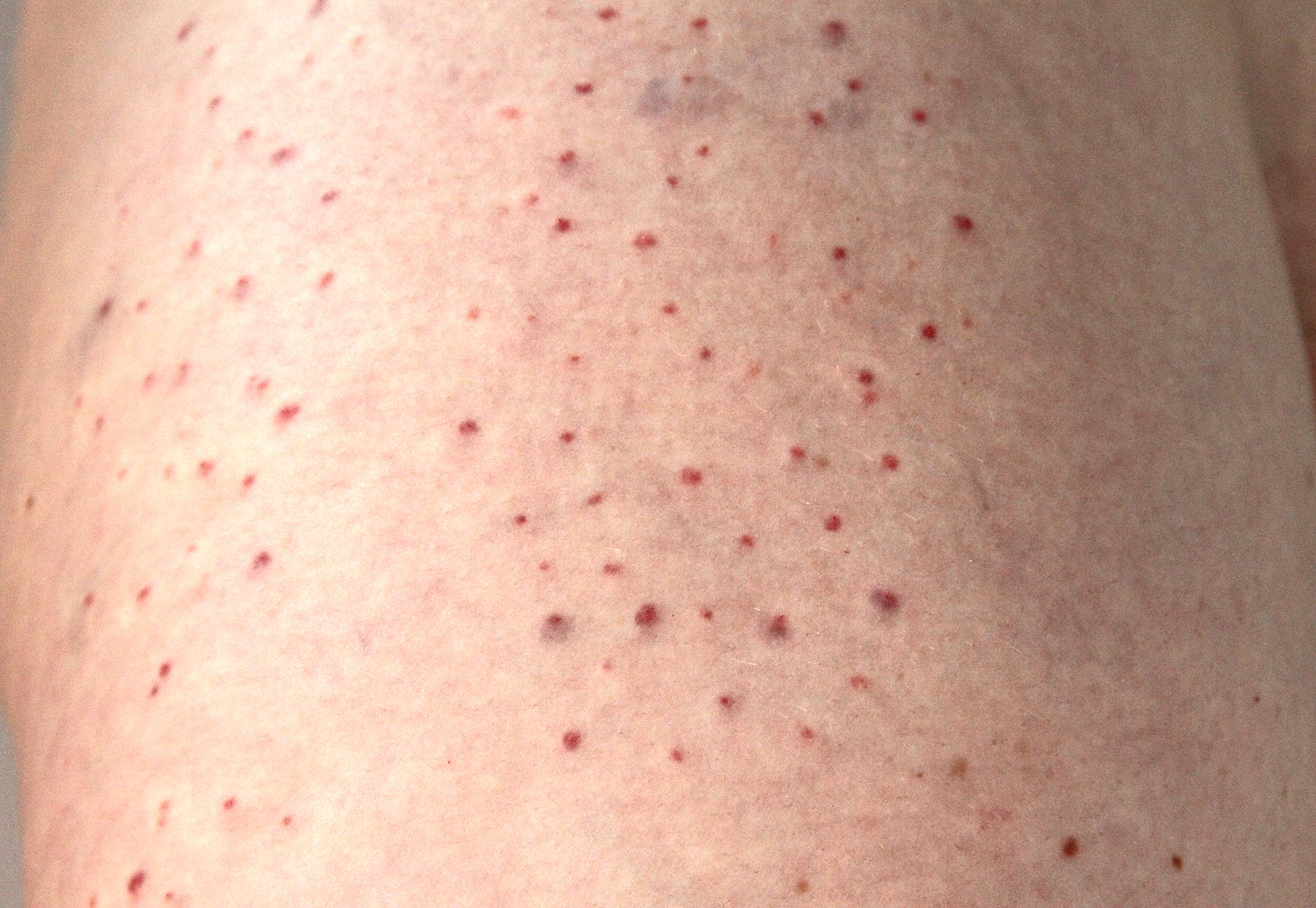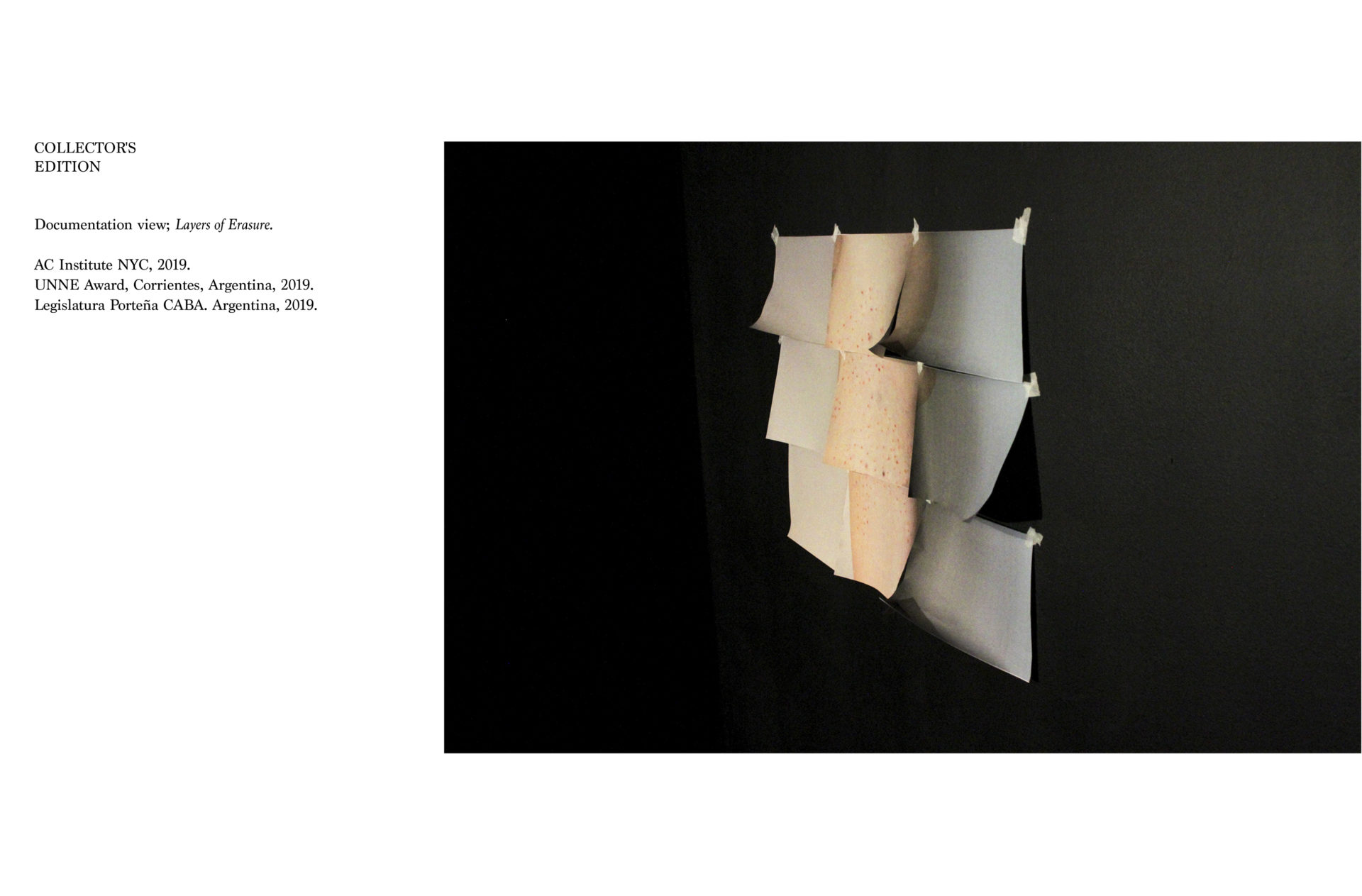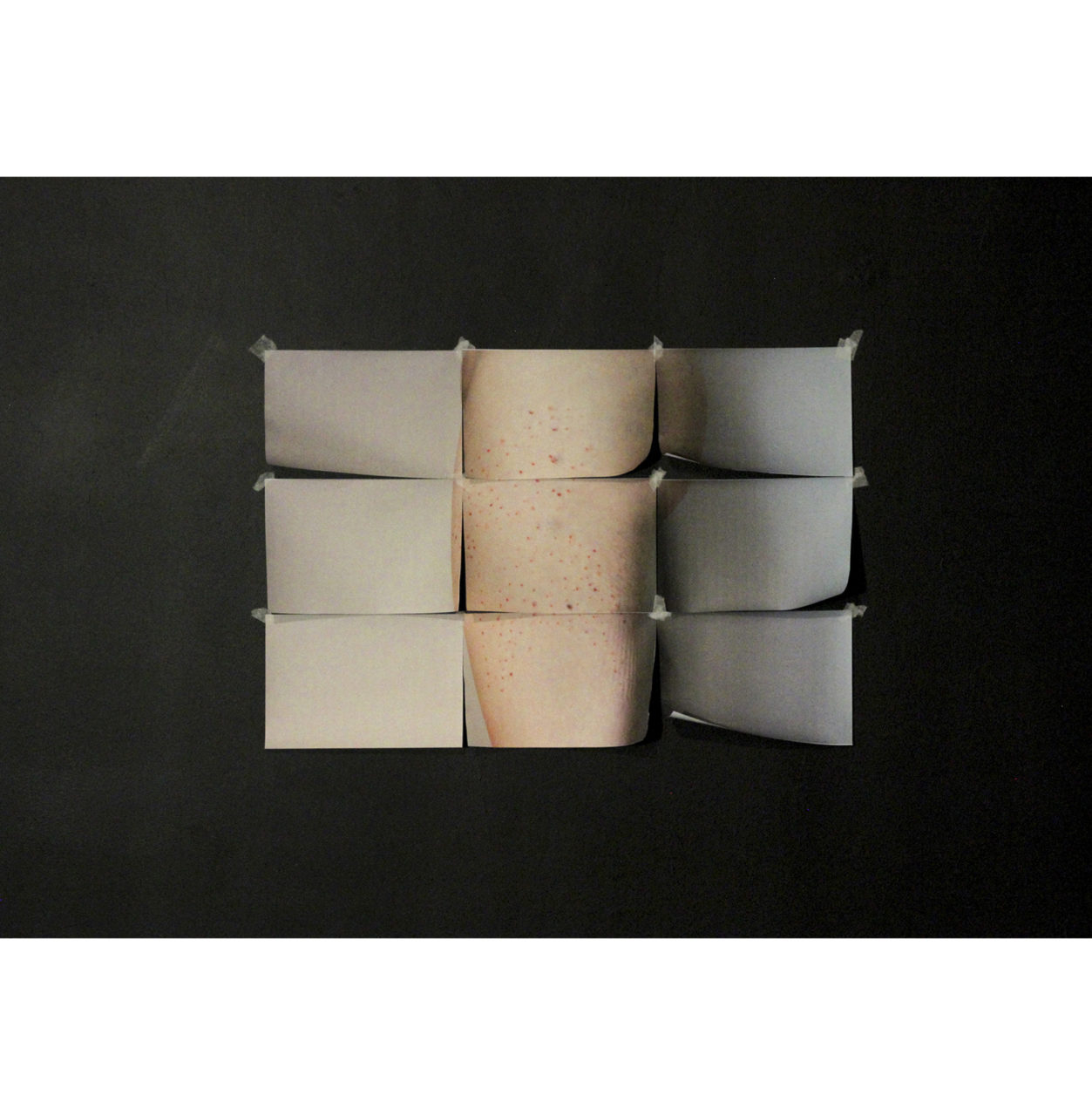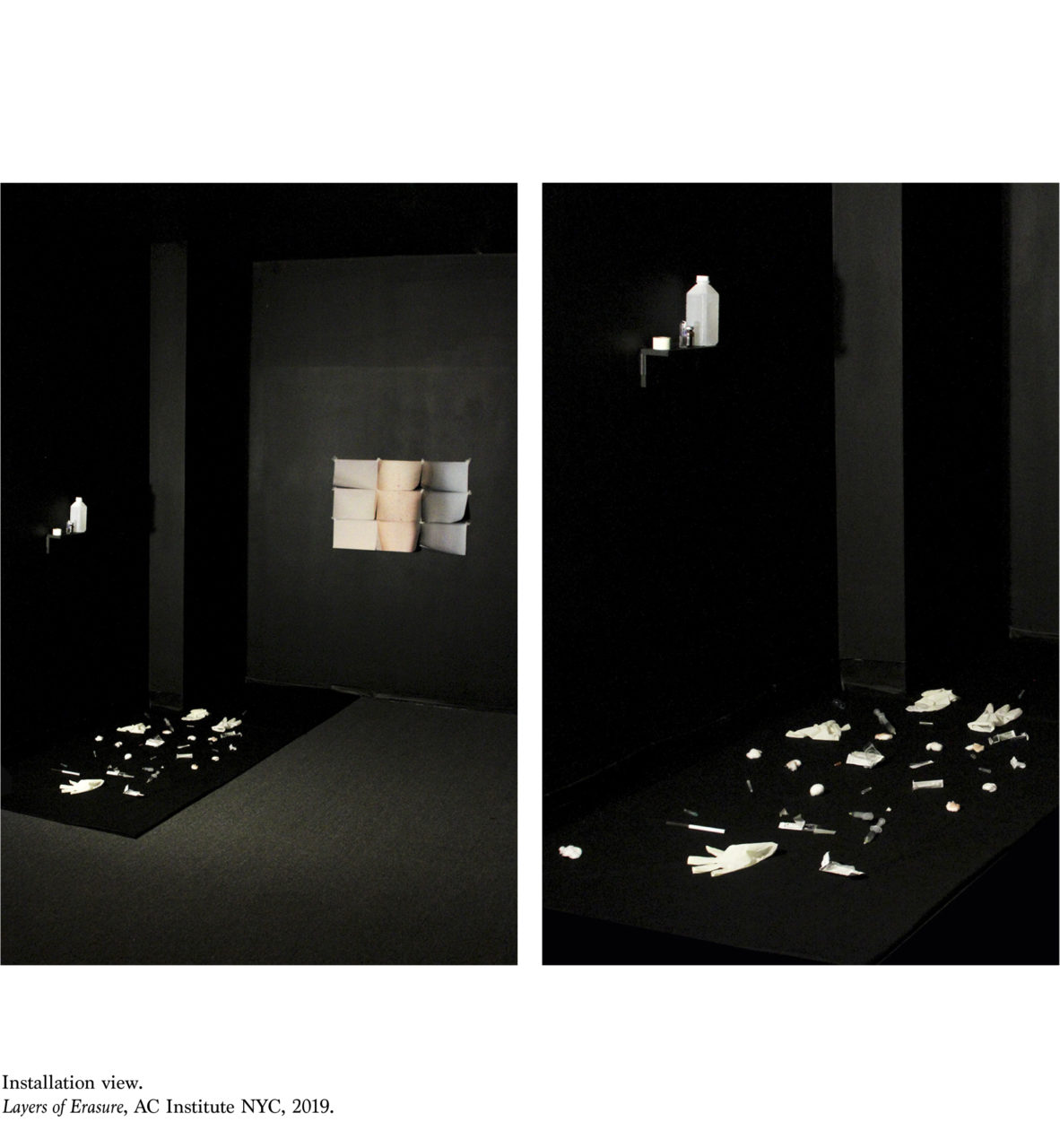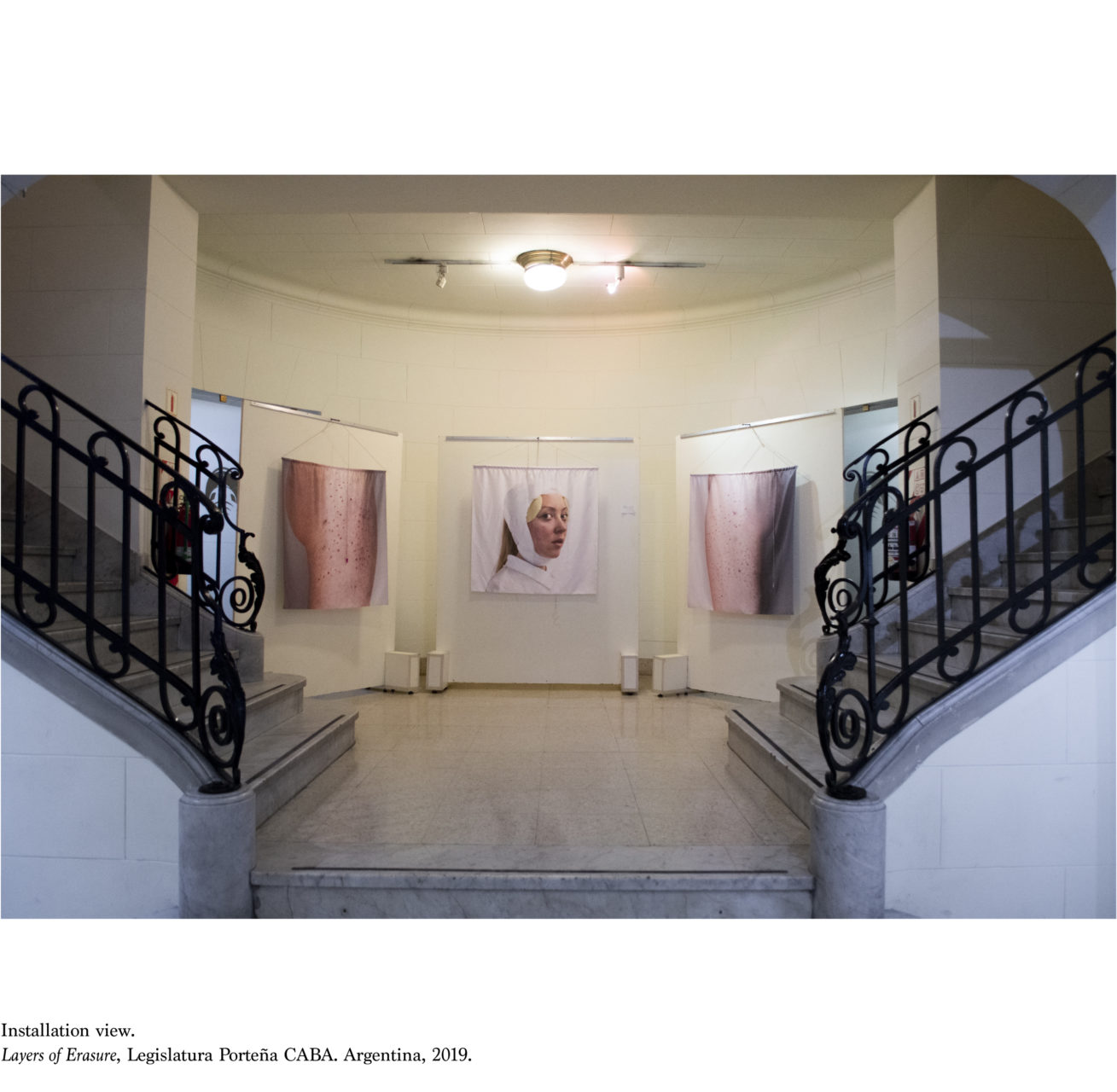PERFORMANCE
NYC, 2019. 45′
First performed at AC Institute NYC
Solo exhibition with Julha Franz. June 27-July 12.
Critical essay by Henrique Menezes, art curator based in Porto Alegre, Brazil.
EXHIBITED AT
PREMIO UNNE, Centro Cultural Universitario de Corrientes y Centro Cultural Nordeste de Resistencia, Chaco. Argentina, 2019.
Una Cuerpa para Yo, Legislatura de la Ciudad Autónoma de Buenos Aires. Argentina, 2019. Curated by Lulú Jankilevich
DESCRIPTION
I performed a live non-surgical cosmetic treatment to permanently extinguish some physical “imperfections” on my legs.
CONCEPT
I’m interested in reflecting on the place of women in society, on the obligation of beauty, placing my body as the vector of a driving involvement in politically committed causes, at the same time I concentrate on the visible exterior of my body and on its social symbology.
This piece emerged from the concept of phenotype-denying, in which a race-identified or gendered self is not considered biologically innate or authentic, but is something that could be created through the enactment of behaviors.
These approaches to performance and politics speak of an intrinsic resistance, of an emancipatory state of what it means to be a woman-latin artist in today’s wavering world. Erasing can be an active and empowering action.
Capas de Borramiento
DESCRIPCIÓN
Realicé un tratamiento cosmético no quirúrgico en vivo para corregir permanentemente algunas «imperfecciones» físicas en mis piernas por 45 minutos.
CONCEPTUAL
Me interesa reflexionar sobre el lugar de las mujeres en la sociedad, sobre la obligación de la belleza; coloco mi cuerpo como elemento que participa activamente en causas políticas, concentrándome al mismo tiempo en el exterior visible y su simbología social.
Esta performance surge del concepto de negación del fenotipo, en el que la identidad de raza o género no se considera biológicamente innata o auténtica, sino algo que puede crearse representando comportamientos.
Esta forma de abordar la performance y la política habla de una resistencia intrínseca, de un estado emancipador relativo a lo que significa ser una artista mujer y latina en el vacilante mundo actual. Borrar puede ser una acción activa y empoderadora.
